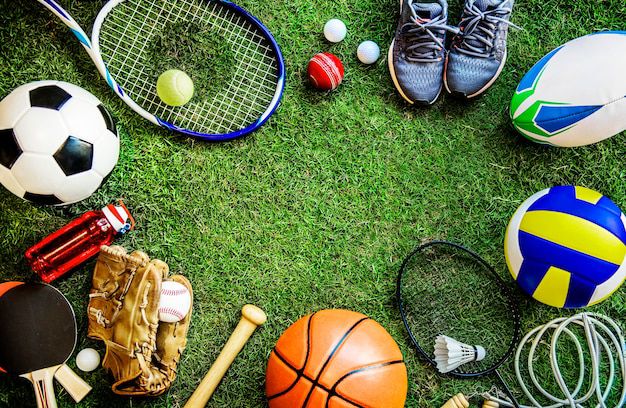**The Significance of Sports in Our Lives**
Sports play a significant role in human society, going beyond just some physical activities to encompass a large range of social, emotional, and developmental benefits. Whether we participate actively or participate as spectators, sports enhances our lives in great ways, contributing to our physical health, mental well-being, and personal growth. This article aims to explore why games are so important and how they affect us as individuals and communities.
**Physical Health and Well-being**
One of most apparen benefits of sports is their good influence on physical health. Participating in sports activities, doesn’t matter if it’s running, swimming, playing basketball, or practicing yoga, supports fitness and overall well-being. Physical activity through sports helps to retain a healthy weight, strengthens muscles and bones, and improves cardiovascular health. The benefits goes way beyond the physical; regular exercise is associated to a reduced risk of chronic diseases such as diabetes, hypertension, and obesity.
Moreover, engaging in sports from a young age imprints healthy habits that can last a lifetime. Children who engage in sports are more likely to carry these habits all the way into adulthood, leading to healthier lifestyles and increased longevity. The significance of physical health cannot be overrated, and sports provide an joyful and effective means of obtaining and maintaining it.

**Mental and Emotional Benefits**
Beyond physical health, sports contribute a lot to mental and emotional well-being. Physical activity activates the releasing of endorphins, neurotransmitters that promote feelings of happiness and reduce stress. In a world where stress and anxiety are increasingly frequent, sports offer a natural and effective way to unwind and relax.
Engaging in sports also supports mental discipline and resilience. Athletes learn to set goals, and work hard to achieve them, and persists in the face of challenges and setbacks. These skills are valuable not only on the field but also in everyday life, helping people navigate personal and professional challenges with confidence and determination.
Furthermore, sports promote a sense of achievement and self-esteem. Achieving personal goals, winning games, or even mastering a new skill promotes self-esteem and reinforces a positive self-image. This is especially crucial for young individuals as they form their sense of identity and self-worth.
**Social Benefits**
Sports are fundamentally social pursuits, bringing individuals from various backgrounds together and developing a sense of belonging. Team sports, in particular, foster collaboration, communication, and teamwork. Athletes learn how to work with their teammates, coordinate strategy, and support one another in order to achieve a common goal. These experiences convert into significant social abilities required for relationship development and good societal functioning. Sports offer opportunities for social engagement and networking. Whether it’s joining a local sports team, playing in leisure leagues, or visiting sporting events, people can connect with like-minded people and build significant friendships. These social relationships foster a sense of belonging while alleviating emotions of isolation and loneliness.
Furthermore, sports have the ability to connect communities and bridge cultural gaps. Sporting activities, whether local tournaments or worldwide competitions, unite people in celebration of athleticism and sportsmanship. They foster a shared identity and communal spirit by instilling civic pride and unity.
**Educational and Developmental Benefits**
This is extremely important for schooling and personal development. As they balance academic academics and athletic commitments, student-athletes learn important lessons about time management, priority, and accountability. Sports also teach valuable life qualities like goal planning, perseverance, and resilience in the face of adversity. Furthermore, sports foster leadership skills and ethical behavior. Captains and team captains learn how to motivate and inspire their teammates, while referees and officials ensure justice and sportsmanship. These experiences help to shape responsible citizens and future leaders who value integrity and collaboration.
**Cultural and Historical Significance**
Sports have had a long history of influencing civilizations and society. Traditional sports express cultural values, traditions, and beliefs, which help to preserve heritage and promote cultural identity. For example, martial arts like judo and taekwondo are firmly ingrained in Asian cultures, but game like soccer and rugby are popular in European and South American countries.
It can also be used to promote social justice and advocacy. Athletes have utilized their platforms to promote significant social concerns like racial equality, gender justice, and environmental sustainability. Sporting activities can encourage tolerance and diversity by challenging prejudices and fostering acceptance and understanding.
**Conclusion**
To summarize, sports are an essential part of our lives, providing several benefits that go beyond the playing field. Sports have a huge impact on our lives, encouraging physical health and emotional well-being while also developing social ties and personal development. They instill vital life skills, develop character, and contribute to the fabric of society by encouraging unity, variety, and inclusivity.
whether we participate as players, coaches, fans, or volunteers, have the ability to inspire, educate, and unite us. They cross cultural, linguistic, and geographical barriers, bringing people together to celebrate athleticism, sportsmanship, and the human spirit. As we traverse the complexity of modern life, sports provide a consistent source of joy, inspiration, and friendship, reminding us of the timeless value of play, competition, and the quest of excellence.
Read this also: basketball, game of cricket, virat kohli
